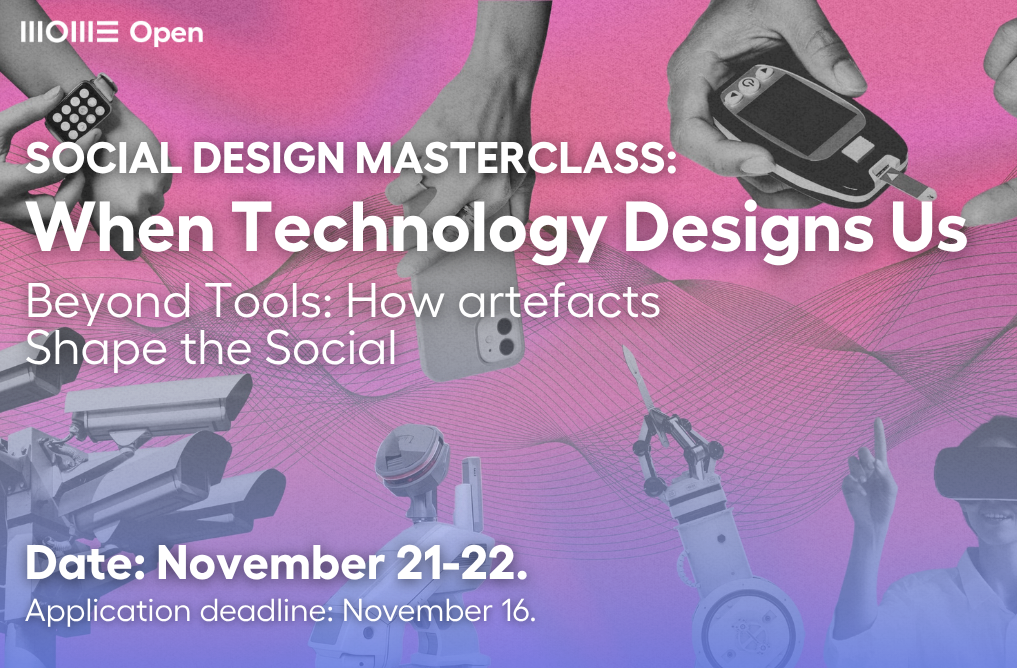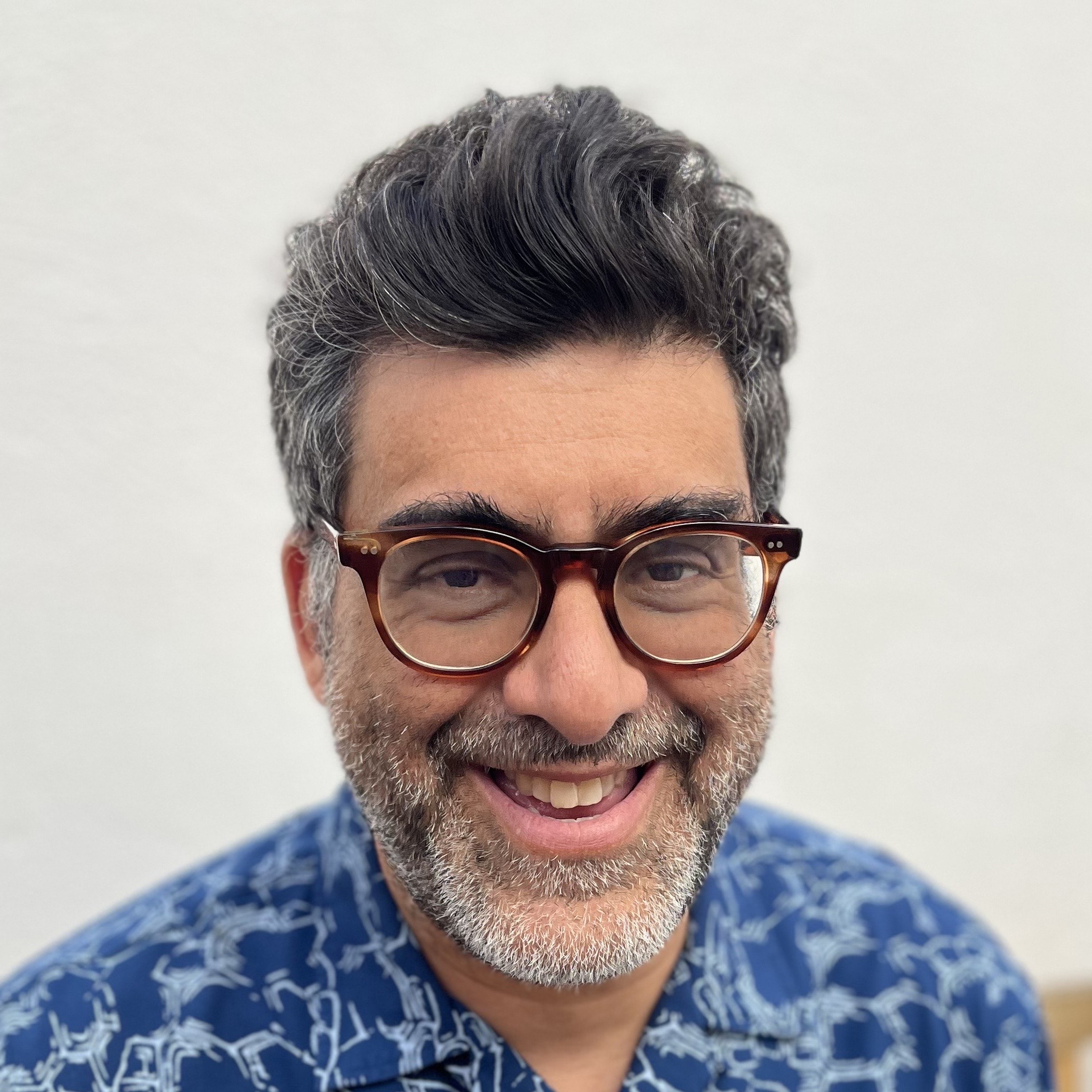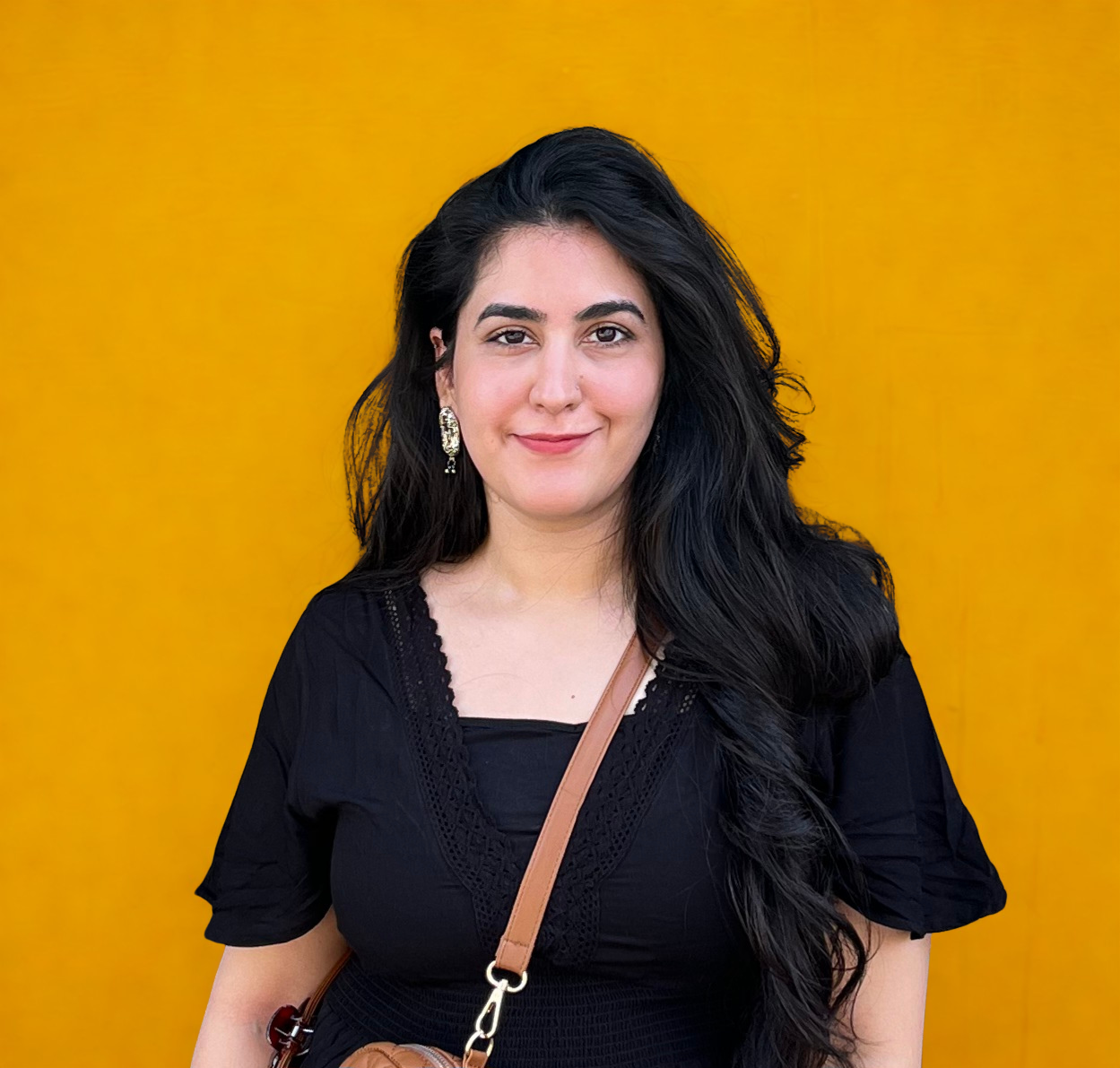
In a world where algorithms decide what we see, smart devices anticipate our needs, and design quietly shapes our behaviour, the question is no longer whether technology influences us but how deeply it does. In cooperation with MOME Society & Action Lab, this november we will hold an online Social Design masterclass called “When Technology Designs Us: Beyond Tools – How artefacts Shapes the Social”, which invites participants to explore these hidden dynamics and rethink the relationship between design, technology, and society.
The two-day intensive program, led by internationally acclaimed design ethicists Dr. Ariel Guersenzvaig and multidisciplinary designer Durre Shehwar Ali, challenges the common view of technology as a neutral tool. Instead, it reveals how every digital artefact — from apps to AI systems — acts as an agent that structures our choices, relationships, and even our understanding of justice and equality.
Through a blend of philosophical inquiry, critical theory, and hands-on exercises, participants will unpack the social, cultural, and political forces embedded in design. The course will also encourage them to move beyond surface-level innovation and to design with greater awareness, empathy, and ethical responsibility. Participants will learn how to analyze technologies as active players in shaping society, recognize patterns of power and exclusion, and apply justice-focused, participatory design methods to co-create fairer systems. By exploring topics such as dark patterns, technosolutionism, and algorithmic bias, participants will gain tools to question dominant narratives around progress and efficiency — and instead imagine more equitable technological futures.
This masterclass is for designers, researchers, and thinkers who sense that tools are never just tools, and who want to understand how design participates in the global order of power. It’s for those curious about how our “wired world” operates and who are brave enough to question who benefits, who is left out, and how design can help redress those imbalances. By the end of the course, participants will be equipped to apply critical socio-technical analysis in their own practice, anticipate the impacts of design decisions, and stand out as professionals who prioritize human well-being over technological hype. The knowledge and mindset gained here will empower them to build systems and experiences that are not only innovative, but also inclusive, transparent, and socially conscious.
Get to know the lecturers:
Ariel Guersenzvaig is a design and technology ethicist based in Barcelona, focusing on the ethical impact of machine intelligence on society and the ethics of professional design activity. He is a professor at ELISAVA, Barcelona School of Design and Engineering. His book The Goods of Design: Professional Ethics for Designers (Rowman & Littlefield, 2021) was selected as a 2022 Choice Outstanding Academic Title by Choice, the journal of the American Association of College and Research Libraries. He has a PhD in Design Theory from the University of Southampton and an MA in Ethics from the University of Birmingham. He has published more than 20 papers and book chapters for leading academic journals and scholarly publishers.
→ Background: Interaction design, design theory and ethics
→ Links:interacciones.org

Durre Shehwar Ali is a multidisciplinary designer and educator from Pakistan whose work examines power, neocolonialism, and frictionless solutionism in design and pedagogy, particularly their impact on democratic systems and public space. She is an Assistant Professor at the School of Visual Arts & Design, Beaconhouse National University, Lahore, where she also coordinates an interdisciplinary program under the UNESCO Chair on Inclusion Through Art. She holds a Bachelor of Industrial Design from NUST, Pakistan, and an MA in Design Research from the Bern University of the Arts, Switzerland. A Hirschmann Fellow and member of the Social Design Network, she has collaborated on projects internationally on healthcare, education, and resource accessibility, and regularly contributes to the social design dialogue in publications and global forums.
→ Background: Design Politics, Social Innovation, Industrial Design
→ Links: https://www.linkedin.com/in/durreshehwarali/

Join the conversation about the future of technology and design and learn how to design for a world where technology no longer just serves us, but shapes us.
Start date: November 21–22, 2025
Format: Online, 2 days (4.5 hours per day)
Application deadline: November 16, 2025
You can apply to the masterclass here:
https://open.mome.hu/when-technology-designs-us/